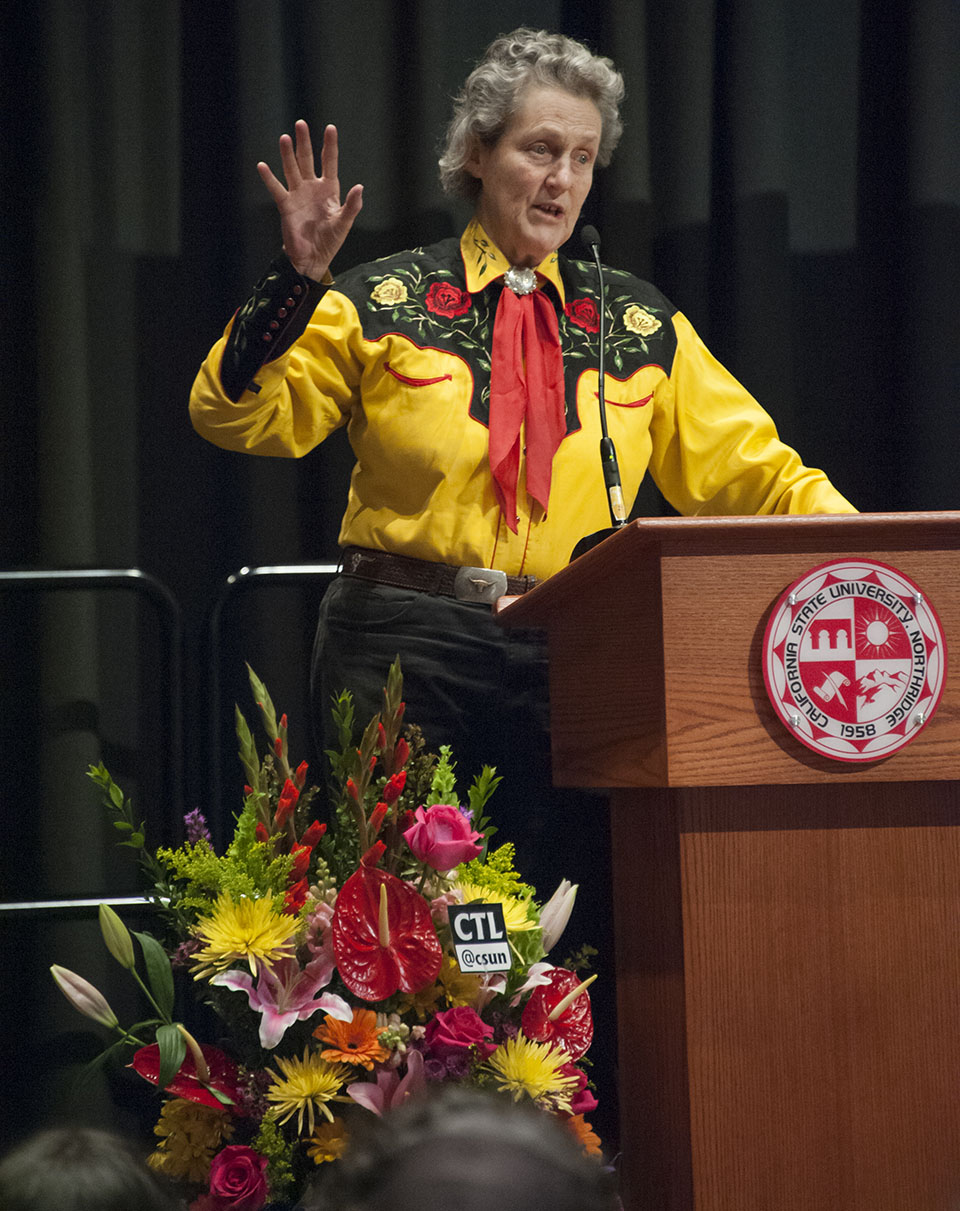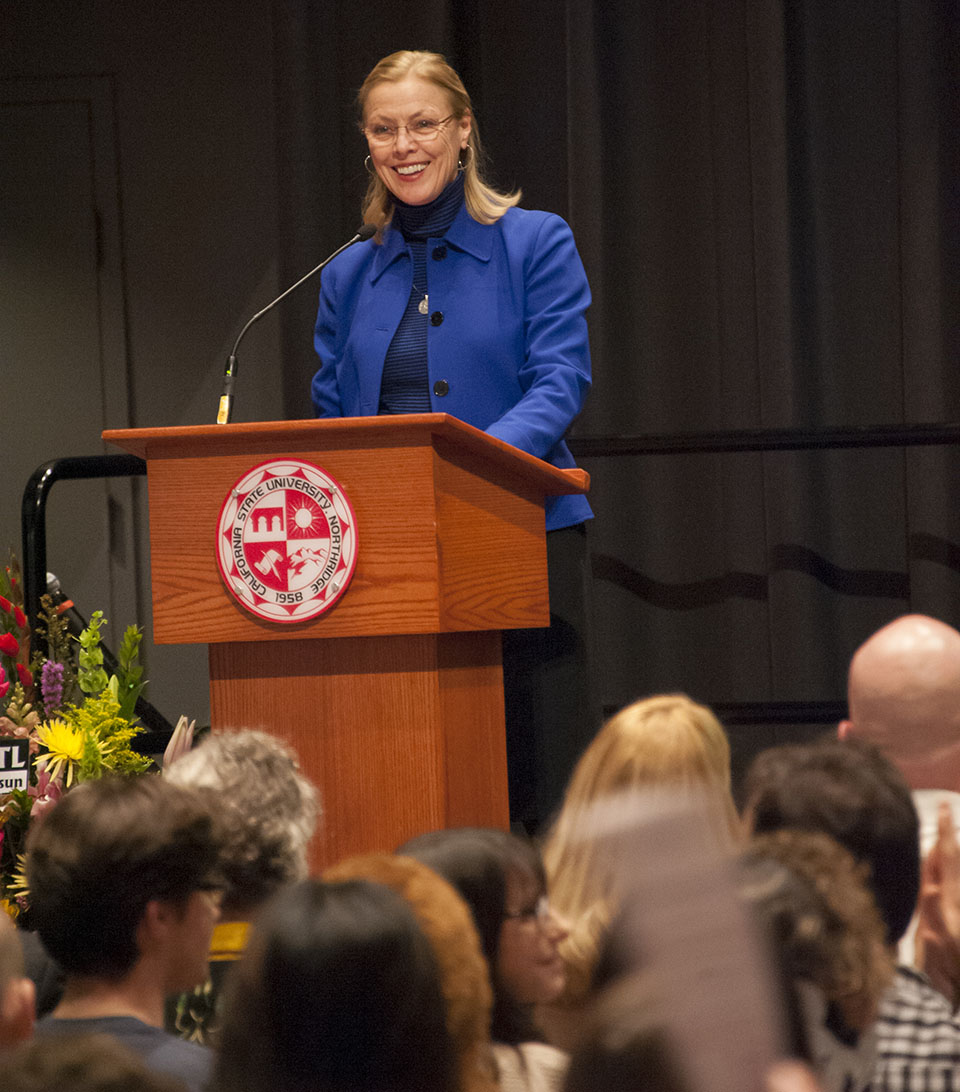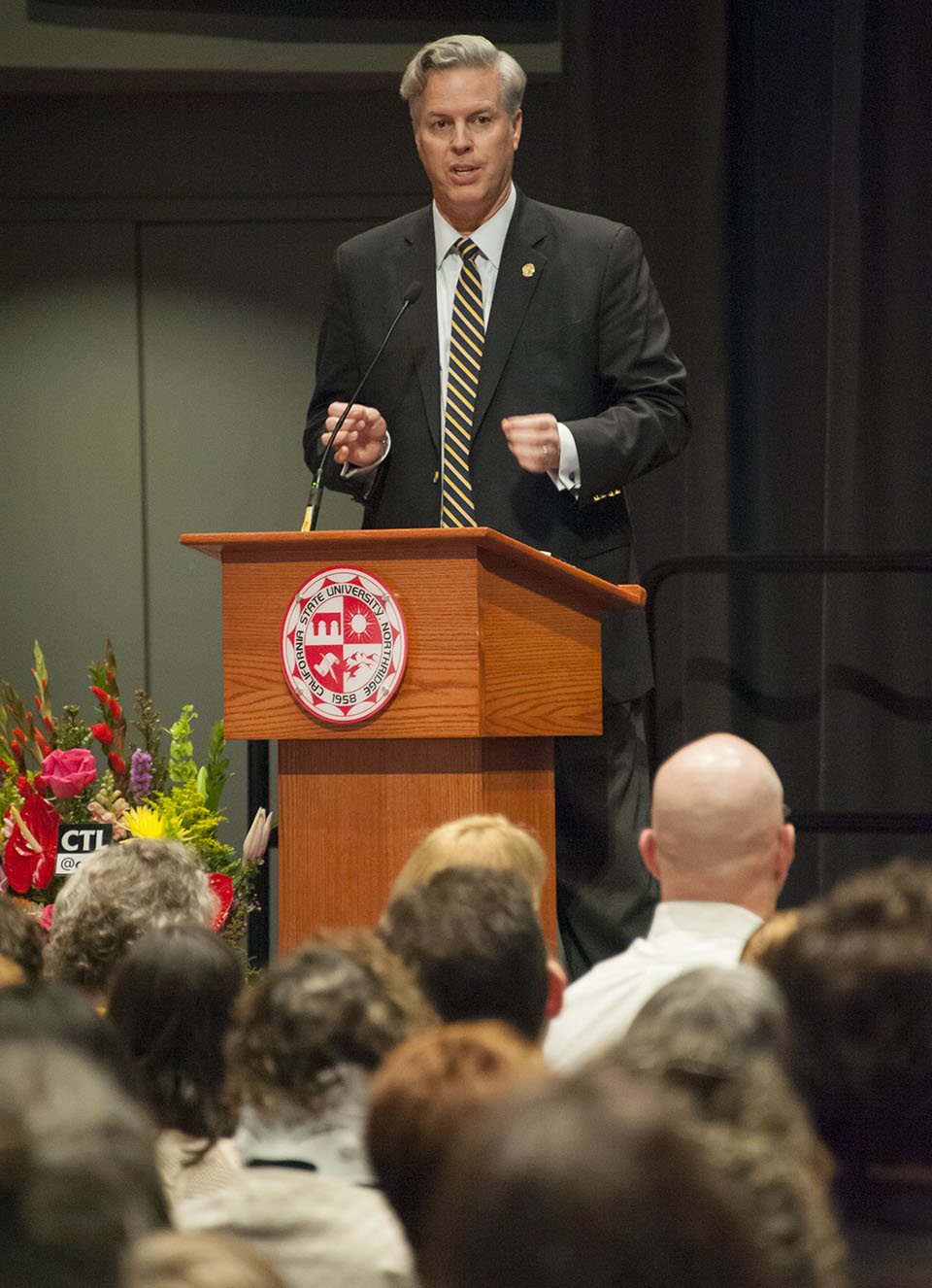Autism Advocate Temple Grandin Comes to CSUN as Part of Education on the Edge Series
California State University, Northridge had the distinct pleasure of welcoming world-renowned autism spokesperson Temple Grandin on Feb. 6 as part of a series of lectures and workshops on modern-day education and accommodating all types of thinkers entitled Education on the Edge, which was presented by the Center for Teaching and Learning. The lecture was open to anyone in the community, and people far and wide, including educators in training and USC students, came to hear Grandin speak.
A well-known figure within the autistic community, Grandin was diagnosed with autism when she was four, and doctors recommended she should be institutionalized. Her parents refused to follow the advice, and helped Grandin to develop her speaking ability. As one of the first people to talk about their own experiences with autism and how it affects them, Grandin was able to develop many innovations to help those with autism, such as the hug box, a deep-pressure device designed to calm hypersensitive people. She was also the subject of the decorated HBO biopic, Temple Grandin, which details how she used her perspective with autism to rise to prominence in the field of animal science.
The lecture was preceded by an introduction from Special Education Professor Wendy Murawski, who was joined on stage by a number of people whose lives had been affected by autism. Among them was Matador alumnus Tom Island, who explained how Grandin’s work had inspired him to step away from his job in corporate America to become an advocate for those with autism.
“Dr. Grandin inspired me to find my voice and start giving speeches to audiences like you,” Island said. It was a huge leap, but it was here on this campus, in Redwood Hall, that I first told my fellow students, ‘You’re at this stage where life no longer comes to you. It’s up to you to come to life. Start making things happen!’”
The lecture focused primarily on the different types of thinkers that the world produces today, and society’s tendency to practice label-locked learning, whereby each student is sorted by what they cannot do, instead on how to build upon their strengths. Grandin spoke about how accommodating every individual through unique, case-by-case education could yield some of the greatest minds of this generation. She used many famous examples, such as Thomas Edison, Elon Musk and Steven Spielberg, all of whom exhibited traits of autism, and did not function well in the traditional education system, to demonstrate how these thinkers go on to achieve great success if they are given the right tools.
“Different kinds of minds can compliment each other,” Grandin said. “For example, Steve Jobs, the artist, made the interface on the iPhone. The mathematical engineers had to make the inside of that phone work. It’s different kinds of minds working together.”
Another key subject of the talk was the lack of focus on the process. Grandin explained many educators become frustrated that students cannot reach the goal set forth, when they should really focus on is a common goal for all students to work toward.
“Do not confuse process with the goal,” Grandin said. “I think sometimes in education we get so caught up with the process, we have forgotten about the goal. On my campus, they’re finishing up construction on a brand-new biology building. One part of it has a concrete frame, and the other has a steel frame. But it doesn’t matter what their foundations look like. They’re going to create a super nice building. That’s what really matters!”
Jennifer Keresztes, who joined Murawski on stage before the lecture to discuss her son’s journey with autism, left inspired by the talk and how it could help with her son’s development, and commended CSUN for hosting such an event.
“Dr. Grandin was amazing, and really inspiring to listen to,” Keresztes said. “Being the mother of an autistic child, I took a lot from her viewpoint and will take it back to my family and my son as he figures out his journey. Talks like this at CSUN make this kind of information more accessible to this community. She was able to not only speak to students, but also parents and educators, and hearing her experience firsthand was really impactful.”




 experience
experience